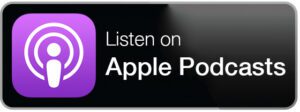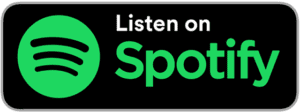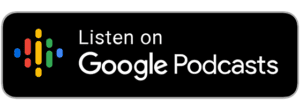Welcome to Lean Leadership for Ops Managers, the podcast for leaders in Ops Management who want to spark improvement, foster engagement, and boost problem solving – AND still get their day job done. Here’s your host, Leadership Trainer, Lean Enthusiast, and Spy Thriller Junkie, Jamie V. Parker.
Happy New Year! Welcome to 2021. I’m so glad to be here with you. I hope you had a fantastic holiday break and are ready to ease back into things this year. So have you listened to last week’s episode with Katie Anderson yet? It’s perfect timing for the start of the year, as many of us spend time reflecting and planning, and preparing for the new year.
And in that episode from last week, we dig into intentional leadership, really exploring the differences between setting goals and setting intention and how you use both. We also talk about setting intention on various levels and using intention as a guide through reflection. So if you haven’t listened yet, be sure to go back and check it out. It’s episode 21.
Now I spent some time reflecting on my experience with this podcast. And for listeners who’ve been with me throughout this journey, I just want to say a big thank you to you. One of the fun activities through my reflection experience was exploring all of the different topics I covered and which episodes were downloaded the most. So I’m going to share with you the top six episodes from 2020. But before I do that, I want to tell you a quick story and offer you an additional reflection question to help you appreciate 2020. Are you ready?
Okay, so I’ve been using Zoom, the video conferencing platform Zoom for two or three years now. And by use, I mean, that’s how long I’ve had a paid account, like I pay them money every month. And I used it for regular communications with meetings for a couple of clients. I had one client where we had webcams set up at their sandbox so that I could attend their daily meetings, or so we could virtually facilitate or participate in strategic planning sessions or root cause analysis. We did improvement activities or training. And I’m not an expert Zoom user but it’s been part of my consulting practice since the beginning.
I also have a scheduler system that allows clients or prospective clients to book time directly on my calendar. So in the appointment scheduler, back two or three years ago when I was using both the scheduler and Zoom, I put all of the Zoom info with the web link.
Well, in 2018 and 2019 guess what happened? My clients who were using Zoom with me already, they were all good. But when a prospective client books time with me, the Zoom information confused them. I would get emails asking if they needed a subscription or do they need to create an account or “Oh, I don’t have Zoom.”
It actually caused problems to have that link in there. So I updated the scheduler and just put it in with a conference call phone number dial-in information. That’s something that people seem to be more used to, seem to be able to follow and understand and not get confused. And so that’s what I put into my scheduler for anything for prospective clients, and then left the Zoom just for already existing clients. So I’ve made the changes, set it and forget it.
Well, fast forward. Fast forward to late summer of 2020, a prospective client booked time on my calendar. I joined via Zoom, and he was joining in on audio, which is exactly what I would expect to happen with the phone number. And then he showed up on video.
And he said to me, “You should put the Zoom link in your appointment details.” He said, “I thought this was just a phone call until I dialed in and realized it was Zoom. So I joined in using the meeting ID but noticed the link to the Zoom appointment wasn’t in there. So just in the spirit of continuous improvement, I’d like to recommend that you put that link in there.”
And I really got a chuckle out of that because one year ago, Zoom and video conferencing was so infrequently used that a Zoom link was confusing to people. And today, video conferencing is so common that now it felt to this CEO like it’s missing. “Why is this just a phone call?”, right? It was out of place. And he knew enough that even without the link, he could figure out how to join on video using the meeting ID.
Now, it doesn’t matter if your organization uses Zoom or Microsoft Teams or GoToMeeting or any of the other countless options. The point is that we now know things that we didn’t know before. We can do things that we couldn’t do before, that were confusing before. And that gets me to a reflection question that I want to pose to you.
Now, my friend, Sandi has been a coach for more than 20 years. She’s the author of The 100 Day Promise and the founder of The Created Life Academy, where she helps women 40 and beyond to create and thrive in the areas that are important to them. And I’ll link to her info in the show notes. Well, recently, she posed a question online on social media, and she asked, “What can you do today that you were not capable of 12 months ago?” Let me say that again. What can you do today that you were not capable of 12 months ago?
Boom!
I love this question!
It’s more than the “what have you learned?” questions. Back in episode 18, Rabbits and Raccoons, I shared my biggest lesson learned in 2020, that I can do hard things, that through everything I went through last year, even rabbits and raccoons, that I made it through each thing. It was uncomfortable. It was hard. I cried a lot, but I didn’t die. I did the hard things. And that’s a lesson learned.
But this question is different. What can you do today that you weren’t capable of 12 months ago?
Collectively, we can video conference like bosses.
Now I know it doesn’t apply to every single person. Some of you may not be on many video conferences, but collectively, as a collective, our on-screen game is on fire. Just like that CEO who was baffled that the Zoom link wasn’t included, when a year ago, putting a Zoom link in an appointment created all kinds of drama.
For me, I can podcast. I can set up my microphone and record in Audacity. Now, full disclosure, I don’t do the editing. Meg does that for me. She also does the cover art. So thank you, Meg, for that. But I can write show notes. I can update them to WordPress. I can do some of the cover art. So while Meg does most of it, I could go in there and do it if I needed to. make adjustments if I needed to through Canva. So she’s taught me some things there.
And if I ever start another podcast, or if a friend asks me for help with theirs, I have all kinds of tips for how to get started with a podcast, something that I knew absolutely nothing about a year ago. If you had talked to me about podcasting a year ago, I just said, “Yeah, not my game, not my deal. I’m not into that stuff. I don’t really listen to them that much. Never done it. I don’t even think I’m going to start one.” And now look at me.
I have a client who now has a discipline to daily management meetings. So if you do tiered meetings, think of this like a Tier 3 meeting, if you’re familiar with that concept. And that could never have happened before, or at least it wasn’t happening before. So pre-COVID, something always came up, something was more important. They didn’t have a disciplined culture. And it started out of necessity in March to manage the crisis. And now still, every day at 8:30 am, the management team, along with the key support folks get together.
And they will tell you, it’s one of the most important things they do. Something that isn’t “necessary” from a crisis management standpoint anymore, but something that is critically valuable. And last year that it was on the list. They knew they wanted to do it. They knew it would be helpful if they did it. But the pandemic bumped up that timeline for them, they made it critical for today. The pandemic pushed it to the top of the pile. And now that discipline has carried over into other areas – discipline breeds discipline. I’m going to talk about that next week on the podcast.
So not only are they having this meeting every day at 8:30 am, but folks are on time to one-on-ones, meetings start on time. And while there are still a few meetings that sometimes run over, it’s not often, where it used to be an everyday occurrence. There’s a very concerted effort to respect time and make decisions accordingly. And all the things that this team is capable of today, they couldn’t make happen 12 months ago. This is awesome, right? This is what a great reflection.
So here it is, again, the reflection question I’m posing to you.
What can you do today that you were not capable of 12 months ago?
Spend some time on that one and celebrate that you learned and grew and now are more capable in these areas.
All right. Well, as I said, I developed my podcasting capabilities over the last 12 months. And while I’m still developing my skills to create and produce amazing content for you, it was a lot of fun to go back and look at the more than 20 episodes that published in 2020 and to explore which topics were most popular – the topics that were downloaded the most.
So how did I pick the top six? Well, it’s not quite as simple as just looking at a chart because this is a new and growing podcast, right? So if I take downloads of all time, so from the time they were released all the way to now, then, of course, earlier episodes have an advantage just because they’ve been published, they’ve been live for longer. And so often, we look at a time constraint, like how many downloads in the first seven days? Or how many downloads in the first 30 days after an episode releases? That’s typically what I look at. The only challenge is understanding that you know those episodes that I released back in August and September? Well, guess what? Not as many people had heard of the podcast, not as many people had been exposed back then. So there’s a little bit of a disadvantage there. So I do look at it both ways to identify the six episodes that were the most popular.
Now, disclosure, popularity doesn’t necessarily mean best, but these are the ones that were downloaded the most.
All right. Well, before I tell you these six, one last thing. If you want to help shape the podcast for 2021, I actually have a two-question form that you can fill out to help do that. You can share the questions that you want answered on the podcast or the challenges or the topics that you want discussed. All you have to do is go to the show notes. So remember the show notes you can always find at processplusresults.com/podcast. Here are the most popular episodes from 2020.
First up, episode 15, “Improving Daily Meetings with Stephanie Hill and Meredith Fisher”. I really love this podcast and getting these additional perspectives from Stephanie and Meredith. And you all loved it, too. I got a lot of comments on LinkedIn, as well as at our show notes website because we were really providing some real tips. So in the gist of it, I think we all understand that huddles or meetings, daily meetings, startup meetings, whatever you call them, that they can be valuable, but sometimes it can be challenging to achieve. And so getting these kind of real-world tips from two amazing professionals who’ve been there and done it and do it even today – they still help teams today with this exact type of work – was really beneficial. So that’s episode 15, “Improving Daily Meetings with Stephanie Hill and Meredith Fisher”.
Next up, episode five, “The Problem with Recognition”. This is actually one of my absolute favorite topics to talk about where 81% of US employees say, “I’m not recognized enough for my contributions.” But if we talk to managers and supervisors and team leads, people would say, “Well, yeah, I say thank you all the time.” So what’s the problem? Why is there a disconnect, where we think we’re sharing appreciation and saying thank you, but people don’t feel it? What is the problem with recognition? So that’s what we talk about in this episode. It’s episode five.
Episode 13, “What is Lean Leadership?” Because it’s kind of this elusive, not really defined thing. It took me a few months to really go through this process before I released the episode, but I went through this investigation, trying to figure out what is leadership in general? What’s the definition of it? What does it mean? And asking other folks and doing investigation and research. And then what is lean leadership? Is it even a thing? Well, you’ll hear my perspective on this episode, episode 13, but not just my perspective, also how I use it when I think about developing leaders, when I think about what is it that leaders really need to develop. If you are doing a training matrix or pie, and you’re saying, “Hey, here are the pieces that folks need to learn and discover,” and you’ve got your training matrix and each one you’ve got your pie that says to what level they are and all that kind of stuff, what is it? What are the pieces that would go into that? And this definition actually would help me drive that. So that’s episode 13, “What is Lean Leadership?”
All right, next up, one of my favorites, episode 12, “Your Lean Management Foundation with Ron Pereira”. Now, Ron and I are good friends. We go back years and years. I was a customer of theirs, of Gemba Academy’s back when I was in corporate at FedEx, and I think I was first on their podcast back in like episode 40 something. And I don’t know, they’re in the three hundreds, I think now. So I’ve been on their podcast many times. I’ve done some webinars with them. I’ve worked with them on kind of how do we help organizations use their training material, and they base some of the things that they’ve done with clients since then on the work I was doing back at FedEx, and how I was using that content. And I even have clients who use Gemba Academy for Lean training and then I help them on the leadership side. So we have this really great partnership and relationship and because of that, Ron and I just have a great time when I get to talk with him. And we talked about how do you build this foundation, looking specifically at Lean daily management. And the take that he has as far as the way that they structure and format the discussion around that is a little different than you might have read in other books or articles. While I think it’s all grounded in the same thing, it’s just formatted and structured in a way that I think is a little bit helpful in thinking about it. So great conversation there. That’s episode 12, “Your Lean Management Foundation with Ron Pereira”.
Next up, episode 14, “Don’t Succumb to Command & Control”. That’s my mnemonic. I am a recovering command and control manager and so I use this mnemonic to help me kind of keep in mind the five leadership interactions that collectively build our relationships with team members, our relationships with people. Because I believe that when we create awareness of our interactions, and when we build our skill in our interactions, and when we’re more purposeful in choosing how we’re going to interact, that we can actually better lead. We can also better lead improvement and help integrate improvement into the everyday. So you can learn about those five leadership interactions in episode 14, “Don’t Succumb to Command & Control”.
And last up for the top six, rounding it out, episode two, “Why is Lean so Hard?” Have you ever implemented a Lean system or tool but didn’t achieve the adoption or the execution or the impact you were expecting? Maybe things were great at the beginning but over time execution waned, and the system wasn’t used effectively and consistently? Frustrating, right? Yeah, it happens. This is what we’re talking about. I hear this show so often. So in episode two, “Why is Lean so Hard?”, I talk about kind of what happens there and the way I like to frame that with the Transformation Trinity thinking about the three different components that need to be in alignment.
So to recap those six most popular episodes, which of course you can find the links to in our show notes at processplusresults.com/podcast, we have episode 15, “Improving Daily Meetings with Stephanie Hill and Meredith Fisher”, episode five, “The Problem with Recognition”, episode 13, “What is Lean Leadership?”, episode 12, “Your Lean Management Foundation with Ron Pereira”, episode 14, “Don’t Succumb to Command & Control”, and episode two, “Why is Lean so Hard?” Did you listen to any of these? Let me know which ones your favorite were, and which ones you would recommend. Now, we’re going to wrap up this episode with next steps.
All right, so here are your next steps for this week. First, reflect on the question from Sandi, “What can you do today that you were not capable of 12 months ago?” and give yourself credit for growing your capabilities. If any of these six most popular episodes sound relevant for you, figure out when you’re going to listen to them, maybe while putting all those holiday decorations away. But go back and listen to any that you missed that you think are relevant. And don’t forget last week’s episode with Katie Anderson where we talk about intentional leadership because that’s a great way to frame your 2021. And third, finally, please give me feedback on what you want to hear about in 2021. You can share the Lean leadership topics that you want to learn more about, questions you have, the challenges you’re facing, what you’d like to hear about, whether it’s from me or whether it’s things that I can bring other practitioners in to share their experiences and their learnings.
Now, there’s a simple two-question survey you can use to give this feedback. You can find it at our show notes, just go to processplusresults.com/podcast and then find episode 22. That’s process plus results.com/podcast, episode 22.
I want to wish you all the best for 2021. Happy New Year. Until next time.
Are you ready to really develop your leaders in 2021? It’s a great time to align your development investment and activities with your organizational true north purpose and goals. If that’s you, let’s talk, no obligation, no pressure, just an opportunity to talk through where you are today, where you want to go, and the obstacles standing in your way. Just click on the “Schedule a Call” button at my website processplusresults.com
















